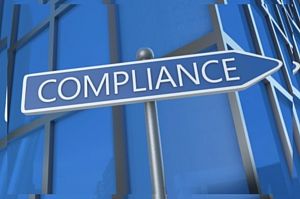If you’re an importer of items regulated by the Food and Drug Administration (FDA), and since you’re reading this blog you probably are, knowing how to navigate the FDA entry process is critical. There’s nothing more important to your business than making sure your imported goods are coming to the U.S. as quickly as possible.
U.S. imports continue to increase steadily, by 10- to 15-percent per year for the last 10 years. Those percentages are anticipated to keep climbing.
So, how do you get your goods to the U.S. efficiently? It begins and ends with the dynamic duo known as the FDA and the U.S. Customs and Border Protection (CBP). Their combined blessing provides you with import access to the U.S.

Here’s our advice on how to navigate the FDA’s entry process.
Entry Submission Process
Entries are submitted to the CBP first, which inspects and hands over approved entries to the FDA for its review. All goods are then examined by the FDA and must conform to the same requirements as domestic goods.
So, how important is the entry submission process for goods? So important, we’re going to use bold lettering.
Goods to the U.S. will be delayed or even refused if specific information and documentation isn’t provided during the detailed entry process.
Licensed customs brokers are the only people authorized by U.S. tariff laws to act as go-betweens for importers seeking to import goods into the country.
Tackling the FDA entry red tape
Most issues raised by the FDA revolve around differences between commercial and personal shipments.
Let’s break it down.
- Commercial shipments are imported goods brought into the country for sale or distribution.
- Personal shipments are goods imported to the U.S. for personal use.
FDA-monitored goods that are denied entry because of electronic entry issues may be denied admission. Denied goods must be exported or they will be destroyed within 90 days.
The FDA also has the power to refuse admission of a product in one of four ways. If the product was:
- Manufactured, processed or packed under insanitary conditions;
- Forbidden or restricted in the country where the item was produced and exported from;
- Misbranded;
- Or is in violation of record-keeping requirements.
How to avoid FDA entry delays
Import entry issues can be avoided by hiring a licensed customs broker. A customs broker can make clearing FDA entry hurdles easier than ever.

Brokers can do the following to help you navigate the entry process:
- Determine if your product is FDA-regulated.
- Obtain a bond that covers the entry to the U.S.
- Provide and review required documentation to the CBP and FDA, transmitting entry information in a more efficient electronic import entry review system.
AFC International will oversee the entire import entry level process, making sure you stay compliant and your shipment makes a smooth and efficient landing in the U.S. Call us at 800-274-2329 today to get started!


Leave a Reply
You must be logged in to post a comment.